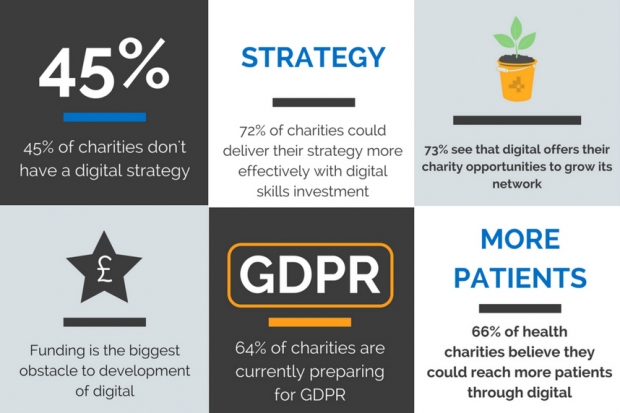As the 2018 Charity Digital Skills Report is launched, its co-author, Zoe Amar talks about the importance of digital skills in the non-profit sector.

What are the first things that come into your head if I say digital? Chances are it’s exciting stuff like artificial intelligence, big data and digital transformation. Skills might not be top of your list.
Yet I think this area is key to how every organisation progresses with digital. Even if you have the budget for great infrastructure and kit, you’ll never be able to make the most of them without skilling up your people so that they can help you get more from these tools.
If I had the choice of investing in just one area of digital, it would be skills. Nothing changes unless people do. And so we were delighted to partner with Skills Platform to map digital skills across the UK charity sector in the second Charity Digital Skills Report.
Skills are often seen as the domain of learning and development. But the best skills aren’t the ones that are learned in a silo, or as a tick box exercise to keep managers happy. Meaningful digital skills not only help develop confidence and motivation in using these channels, but also encourage people and their organisations to learn and grow.
We see this in the results of this year’s Charity Digital Skills Report which showed that:
- Charities have clearly identified what developing their digital skills could help them achieve. 73% think it would help them grow their network, and 72% think it would help them increase fundraising
- More charities believe they could deliver their strategy more effectively by investing in digital skills (72%, up from 69% previously).
- Developing staff and retaining staff has become more of a priority, with 65% stating that developing digital skills would help develop and retain staff (57% last year).
- Unless boards and leadership teams improve their skills and confidence with digital, more than half of the charities we spoke to told us that they are worried about giving competitors an advantage (53%), losing touch with their audience or affecting their brand and reputation (both 51%).
Increasing digital skills could not only help charities improve their bottom line, but also achieve their goals, and keep and retain staff hungry to learn about digital. If that isn’t a business case for charities investing in this area, then I don’t know what is.
Our report isn’t alone in highlighting these trends. Last year, Lloyds Business Digital Index showed that highly digitally capable charities are twice as likely to save money and see an increase in donations, and 10 times as likely to save costs.
The good news is that digital skills for charities need not be expensive. From reading articles on Econsultancy and Charity Digital News, to NCVO’s digital toolkit and the Small Charities’ Coalition’s tech resources, there is plenty of free and low cost stuff out there. These resources will help charities get started and identify further training needs.
Our report shows that whilst some charities are getting more confident with digital, this isn’t yet consistent across the sector. If this is to change, then we need to put people and igniting their love of learning about digital at the heart of transformation. The amazing tools that digital offers, alongside the passion for social change that we see in the charity sector, really could change the world.
Read The Charity Digital Skills Report
Follow Zoe on Twitter @zoeamar
1 comment
Comment by Greig Thomson posted on
Well written valid article.
Greig Thomson
Creative Director | Outside Media Group
https://outsidemedia.group